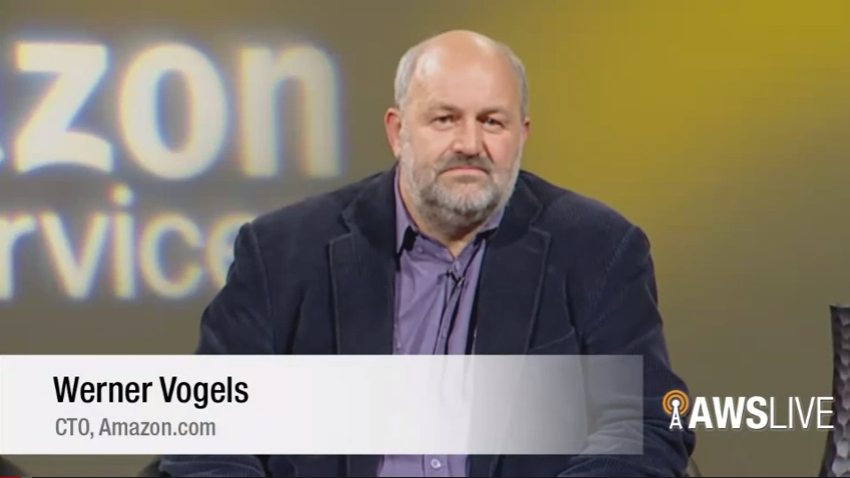 One could argue that Amazon.com has had more impact on the startup community than nearly any corporate venture capital fund, largely driven through the low-cost services it provides via Amazon Web Services. But the venture capital community wasn’t always a fan.
One could argue that Amazon.com has had more impact on the startup community than nearly any corporate venture capital fund, largely driven through the low-cost services it provides via Amazon Web Services. But the venture capital community wasn’t always a fan.
Speaking at an event in Australia Tuesday, Amazon.com CTO Werner Vogels noted that venture capitalists initially “hated” AWS because it “robbed them of the opportunity to get to significant chunks of young businesses,” according to a report in ComputerWorld. In other words, the infrastructure services from AWS made it so cheap for startups that venture capital wasn’t needed in the early-stages of many young companies.
But Vogels said things have changed, and VCs now embrace AWS since it allows them to place more bets and essentially “spread their risk much more.”
Thousands of startup companies rely on the infrastructure services provided by Amazon, creating a low-cost way for entrepreneurs to get new services off the ground quickly and scale as customers arrive. Outsourcing those services doesn’t come without risk as some startups found last year when Amazon suffered a massive outage at one of its data centers, an outage that knocked a number of services offline for days.
Nonetheless, the trend of outsourced back-end services has had a huge impact on the venture capital community, one that can be seen in the quarterly numbers. Commitments to venture capital funds have plummeted in the past five years, down from $31.1 billion in 2007 to $18.2 billion last year. That’s been driven in part by the softening economy. But it’s also the fact that VCs — and the startups they back — just don’t need as much capital as they used to.
At nearly every startup event and VC conference, that’s a recurring theme. As Seattle angel investor and venture capitalist Bill Bryant noted last month: “It is infinitely easier, orders of magnitude, exponentially easier to get companies going today.”
The way things have played out in the venture capital and startup community is classic Amazon, a highlight of how it approaches the business world through unconventional styles. Rather than set up a corporate VC fund like many other companies, Amazon instead decided (either consciously or unconsciously) to radically alter the costs associated with startups. At the time of its introduction, few could see the impact that it would have, and as Vogels noted many were fearful of the approach.
In a 4-part series by The Seattle Times this week, the newspaper is taking a close look at Amazon’s practices related to philanthropy, book publishing and taxes, basically an inside peek at a company that keeps a relatively low-profile in its own hometown. Amazon declined to be interviewed for the series, but it issued this statement about it:
At Amazon, if we do our job right, our greatest contribution to the good of society will come from our core business activities: lowering prices, expanding selection, driving convenience, driving frustration-free packaging, creating Kindle, innovating in web services, and other initiatives we’ll work hard on in the future.

I was struck by that statement because it could be taken right out of the AWS playbook as it relates to the startup and venture capital communities. Amazon has embraced those communities more than other constituencies, but for the most part it has taken a hands-off approach, letting its services and prices stand on their own as its overall “contribution.”
You can argue whether that’s the best approach for a corporation or not, but the philosophy certainly runs deep through the channels of Amazon.
Vogel’s remarks come as Amazon Web Services Jeff Barr kicked off a new video blog called “The AWS Report,” with the first episode featuring Rob Frederick of Seattle-based Gripwire.
Frederick, an early employee at AWS who later joined Seattle startup Snapvine, said when he started out in the startup community there was an emphasis on getting your rack space set up and having people monitoring the server environment 24 hours per day, seven days per week. But that has pretty much disappeared.”When I started Gripwire, that was just a thing of the past. I just said: ‘Hey, let’s use AWS, and I haven’t really looked back since.”
The show at times feels like a big ad for AWS, and the production on the show is a bit “new-agey,” with clouds floating by on the set and soft music playing in the background. But it does show how Amazon — which already disrupted online retail — is doing the same in the venture capital business.
Previously on GeekWire: Amazon.com dubbed a corporate scrooge by hometown newspaper





